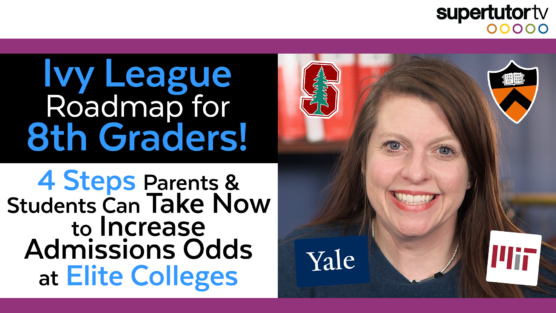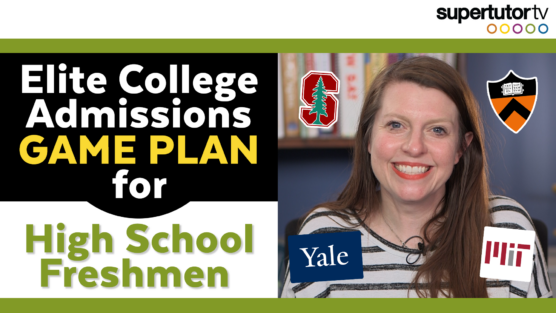Have you been writing your college applications and wondering if you’re allowed to use ChatGPT or what the individual policies are for some of the colleges you’re applying to?
We basically went to the top 30 ranked colleges on US News & World Report for these policies, but let’s first talk about why so many colleges and universities do not have an official policy on AI. And the way that I see it is that it’s a bit of a zero-sum game. If you do choose to use AI on your college application assets, there are two outcomes. Outcome one is that you overuse it, and then either A, you sound like a chatbot or not like a 17-year-old, or B, you write something that is stale and boring because ChatGPT tends to make things kind of stale and boring. Both of those things aren’t going to get you into Harvard. So why does Harvard need a policy on this? Because if you overuse ChatGPT, you’re not getting it anyway because it’s not going to be good enough. The other alternative is that you use it so sparingly that it’s undetectable. And if it’s undetectable, they can’t police it. If it’s undetectable, it’s undetectable. In the same way that when you ask your teacher if they can read your college essay after school, you say that you were struggling for a verb, and they help you find one. So, if you use it in that way, people are already asking for help in that way from Mom, from Dad, from an English teacher, or from me, a college consultant. What’s the difference? It’s just equitable because if somebody’s mom works all day and doesn’t have time to look at their essay, ChatGPT can help them find a new verb for that sentence they couldn’t find it for.
So, then why do we need a policy? Maybe we don’t. Well, 25 schools agree with you. 25 of the 30 colleges never got back to us. But the New York Times got rebuffed as well, and we actually have more information than the New York Times got. So, if you want more than the New York Times told you, stay tuned because we’re going to give it to you.
Moving onto what the colleges actually said: Emory University said,
“Thank you for your message. At this time, Emory University does not have any official statement on this.”
Next up, Cornell University:
“We politely decline to participate at this point.”
The third one, the University of Florida, said,
“We’ve shared your question provided below with the Florida Board of Governors Public Affairs Office. Please reach out to their team for a response.”
They gave us an email address, but they did not respond to that email.
We then got to the more thought-out responses. One was from the University of Michigan at Ann Arbor. They said:
“We are aware of this new technology and continue to stay abreast of current trends. At this time, we have not made any changes to our undergraduate application process, including our essay questions.”
So, they basically said nothing has changed. The same kind of rules that applied before apply now. Yeah, there’s other technology out there, but it’s the same. Then, they went on to randomly talk about their chatbot Blue, which can help students navigate the admissions process, which might use AI but has nothing to do with whether you can use AI when you write your essays. And then they also talked about a holistic review and said that they’re not just looking at essays; they’re also looking at a lot of other things.
And before we get to the two colleges with actual policies that we’re going to go over today, if you are looking for help in your college application or essay process at SupertutorTV, we have myself as well as several other essay coaches who are experts in storytelling to help you figure out your best story. We don’t write your story for you, but we ask you lots of great questions to help you dig through your brain and figure out what some of your most significant experiences are and what parts of you are awesome and unique.
Onto the schools that actually have policies. The first one is Brown, and Brown didn’t respond to our email, but then subsequently, they posted “Artificial Intelligence in the Application Process.” As per the Common App Policy, their definition of application fraud includes:
“submitting plagiarized essays or other written or oral material or intentionally misrepresenting as one’s own original work: (1) another person’s thoughts, language ideas, expressions, or experiences, or (2) the substantive content or output of an artificial intelligence platform, technology, or algorithm.”
So, then, Brown affirms this definition and reiterates their own independent policy that
“the use of artificial intelligence by an applicant is not permitted under any circumstances in conjunction with application content. All essays, short answer questions, and any other material submitted by an applicant must be the work of the individual, unassisted by artificial intelligence.”
So right there, Brown says you can’t use it at all. It’s the strictest policy I’ve ever seen, but it’s also one of the only policies I’ve ever seen.
Let’s go to the other policy because the other policy we got is actually quite interesting, and this is Caltech, who actually emailed us back. It took them a month, but props to Caltech, and I think they have the best guidelines of anybody. Their policy is under “Ethical Use of AI: Guidelines for 2024 Applicants,” and they say:
“Your essays are where we hear your voice. Relying on AI, specifically large language models such as ChatGPT or Bard, to craft your essay will dilute your unique expression and perspective. While we know AI tools have become readily accessible over the recent months, overuse of AI will diminish your individual bold, creative identity as a prospective Techer.
What are some examples of unethical uses of AI for Caltech admissions essays? Copy and pasting directly from the AI generator, relying on AI-generated content to outline or draft an essay, replacing your unique voice and tone with AI-generated content, and translating an essay written in another language.
What are some examples of ethical uses of AI for Caltech admissions essays? Using AI tools like Grammarly or Microsoft Editor to review grammar and spelling of completed essays, generating questions or exercises to help kickstart the brainstorming process, and using AI to research the college application process.
If you are still wondering whether your use of AI in crafting your application is ethical, ask yourself whether it would be ethical to have a trusted adult perform the same task you were asking of ChatGPT. Would a teacher be able to review your essay for grammatical and spelling errors? Of course. Would that same teacher write a draft of an essay for you to tweak and then submit? Definitely not. Above all else, remember to be authentic to yourself when writing your essays. Our Caltech supplemental questions are designed to spark your curiosity, make you think deeply about whether you see yourself as a Techer, and to jumpstart your creativity. Don’t let reliance on an AI tool take that opportunity from you.”
I do think this is really reasonable. It’s like, would a teacher be able to help you swap out a word? Yeah, they could maybe give you one word to use, and that would be reasonable. In any case, they’re acknowledging that it exists and that people are going to use it, and they’re saying, please don’t let it dilute your voice because that’s what it can do, which could be really dangerous and hurt your application chances.
I hope that this was helpful for you guys and that you learned something about college AI policies!




